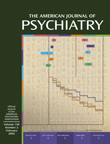Mania in Hyperandrogenism, Insulin Resistance, and Nigricans Acanthosis Syndrome
Ms. A, a 19-year-old Hispanic woman with no prior psychiatric diagnosis, was brought to the emergency department by police during a manic episode. When she arrived at the medical center, her symptoms were characterized by an elevated mood, a lessened need for sleep, racing thoughts, and pressured speech. She also exhibited grandiose delusions, believing that she was the messenger of God and that she was so rich that she could buy 50 cars for the poor. At further questioning, Ms. A indicated that she had run away from home a week before admission, after a disagreement with her stepfather.Her past medical history revealed a history of hirsutism and a diagnosis of polycystic ovary disease. Ms. A had been treated with oral contraceptives for about 6 months. She had stopped taking the birth control pills 2 months before the current episode. Although Ms. A reported a history of marijuana and cocaine abuse, her urine and serum toxicology screens at admission were negative for any substance. The results of other routine laboratory tests, including a CBC and measurements of glucose, blood urea nitrogen, creatinine, potassium, sodium, chloride, bicarbonate, and thyroid-stimulating hormone, were within normal limits.Ms. A’s physical examination was significant for a male pattern of hair growth on her face and hyperpigmented skin on the nape of her neck. The results of subsequent endocrinological tests were consistent with the diagnosis of HAIR-AN syndrome: an elevated insulin level of 54.7 μU/ml (normal range=0–25 μU/ml), an elevated testosterone level of 0.93 ng/ml (normal range=0.14–0.76 ng/ml), a normal level of follicle-stimulating hormone (3.2 mIU/ml), and a normal level of luteinizing hormone (8.10 mIU/ml). The results of imaging studies, including magnetic resonance imaging of the head and an abdominal computerized tomography scan, were unremarkable and were not suggestive of growth in the pituitary or adrenal glands.While she was in the hospital, Ms. A’s manic symptoms were successfully treated with a combination of lithium, divalproex sodium, and quetiapine. She refused to take oral contraceptives, despite the possible association of her mood symptoms with the discontinuation of birth control pills. After 2 weeks of hospitalization, she returned home with her parents.
References
Information & Authors
Information
Published In
History
Authors
Metrics & Citations
Metrics
Citations
Export Citations
If you have the appropriate software installed, you can download article citation data to the citation manager of your choice. Simply select your manager software from the list below and click Download.
For more information or tips please see 'Downloading to a citation manager' in the Help menu.
View Options
View options
PDF/EPUB
View PDF/EPUBGet Access
Login options
Already a subscriber? Access your subscription through your login credentials or your institution for full access to this article.
Personal login Institutional Login Open Athens loginNot a subscriber?
PsychiatryOnline subscription options offer access to the DSM-5-TR® library, books, journals, CME, and patient resources. This all-in-one virtual library provides psychiatrists and mental health professionals with key resources for diagnosis, treatment, research, and professional development.
Need more help? PsychiatryOnline Customer Service may be reached by emailing [email protected] or by calling 800-368-5777 (in the U.S.) or 703-907-7322 (outside the U.S.).

